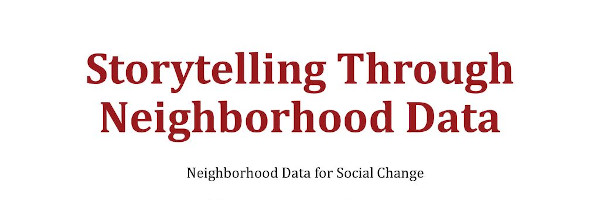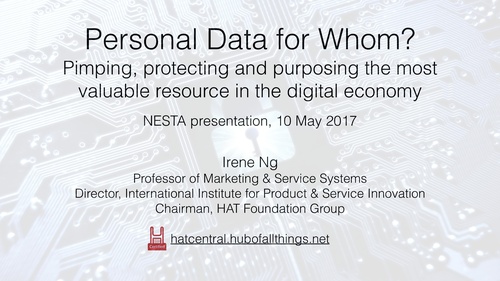Open Data: Difference between revisions
Created page with "{{Chapter | blueprint = Data | sectors = Data | authors = Irene Ng | poc = Irene Ng | email = | document = 20170824-City-Platform-Supercluster-Report-FINAL.pdf | chapter = 39..." |
No edit summary |
||
| (8 intermediate revisions by the same user not shown) | |||
| Line 7: | Line 7: | ||
| document = 20170824-City-Platform-Supercluster-Report-FINAL.pdf | | document = 20170824-City-Platform-Supercluster-Report-FINAL.pdf | ||
| chapter = 3900 | | chapter = 3900 | ||
| image = OpenDateChapter.jpg | |||
| summary = The way to think about data is as a new currency – a store of value. What is the value of data, it is a similar question to what is the value of the USD or GBP. The answer for the value of USD is that it is a “basket of goods” because the USD is a store of (potential) value. Stuff you can spend the USD on. | |||
}} | }} | ||
A similar answer for the value of data would be “a basket of personalisations/recommendations”. Taking the analogy further, data isn’t valuable till you ‘spend’ it, i.e. when it becomes a medium of exchange. Like the way USD is not really valuable till you spend it. And just because it has the potential to be spent on something, doesn’t mean that it can be realised. Try to go to a country that doesn’t accept USD and you’ll get what I mean. Currently, the part of the Internet that is thirsty for this personal data currency (in a very lumpy and crude form) is advertising. But that is quickly changing. We are already seeing personal data being used (“spent”?) for recommendations, advice, and insights across a whole range of industries. | |||
The difference between data and USD is of course in the way data is made into a medium of exchange. Data on Facebook is a currency because of the way Facebook organises it for its ease of use and exchange in targeting ads. So Facebook data on Facebook is not just where the data sits, it is also where the exchange happens. Facebook personal data is therefore a kind of personal data currency in the ‘country’ of Facebook and FB has created exchanges and transactions that made the medium of exchange possible. Take the data out of Facebook, and suddenly one is not really sure of its ‘value’. Without the platform, it’s data is stripped of its contextual use, making its value uncertain unless there is another place to use it. So, stripped of its context, FB personal data becomes a potential value in use. | The difference between data and USD is of course in the way data is made into a medium of exchange. Data on Facebook is a currency because of the way Facebook organises it for its ease of use and exchange in targeting ads. So Facebook data on Facebook is not just where the data sits, it is also where the exchange happens. Facebook personal data is therefore a kind of personal data currency in the ‘country’ of Facebook and FB has created exchanges and transactions that made the medium of exchange possible. Take the data out of Facebook, and suddenly one is not really sure of its ‘value’. Without the platform, it’s data is stripped of its contextual use, making its value uncertain unless there is another place to use it. So, stripped of its context, FB personal data becomes a potential value in use. | ||
| Line 21: | Line 22: | ||
People think data is an object or some commodity like oil. It doesn’t help that many have actually said “data is the new oil”. This makes a BIG assumption i.e. we know the boundaries of what makes it a commodity. Even oil is commoditised through rights to drill or a barrel of crude oil. Data? Its existence does not make it an economic good. Not yet anyway. | People think data is an object or some commodity like oil. It doesn’t help that many have actually said “data is the new oil”. This makes a BIG assumption i.e. we know the boundaries of what makes it a commodity. Even oil is commoditised through rights to drill or a barrel of crude oil. Data? Its existence does not make it an economic good. Not yet anyway. | ||
[[File:Personal_Data_for_Whom.pdf|500px|Personal Data for Whom?]] | |||
Latest revision as of 22:29, January 15, 2023
| Data | |||||||||||||||||||||||||||||||||||||||||||||||||||||||||||||||||||||||||||||||||||||||||||||||||||||||||||||||||||||||||
|---|---|---|---|---|---|---|---|---|---|---|---|---|---|---|---|---|---|---|---|---|---|---|---|---|---|---|---|---|---|---|---|---|---|---|---|---|---|---|---|---|---|---|---|---|---|---|---|---|---|---|---|---|---|---|---|---|---|---|---|---|---|---|---|---|---|---|---|---|---|---|---|---|---|---|---|---|---|---|---|---|---|---|---|---|---|---|---|---|---|---|---|---|---|---|---|---|---|---|---|---|---|---|---|---|---|---|---|---|---|---|---|---|---|---|---|---|---|---|---|---|---|

| |||||||||||||||||||||||||||||||||||||||||||||||||||||||||||||||||||||||||||||||||||||||||||||||||||||||||||||||||||||||||
| Sectors | Data | ||||||||||||||||||||||||||||||||||||||||||||||||||||||||||||||||||||||||||||||||||||||||||||||||||||||||||||||||||||||||
| Contact | Irene Ng | ||||||||||||||||||||||||||||||||||||||||||||||||||||||||||||||||||||||||||||||||||||||||||||||||||||||||||||||||||||||||
| Topics |
| ||||||||||||||||||||||||||||||||||||||||||||||||||||||||||||||||||||||||||||||||||||||||||||||||||||||||||||||||||||||||
Activities
Press
| |||||||||||||||||||||||||||||||||||||||||||||||||||||||||||||||||||||||||||||||||||||||||||||||||||||||||||||||||||||||||
- Authors
The way to think about data is as a new currency – a store of value. What is the value of data, it is a similar question to what is the value of the USD or GBP. The answer for the value of USD is that it is a “basket of goods” because the USD is a store of (potential) value. Stuff you can spend the USD on.
A similar answer for the value of data would be “a basket of personalisations/recommendations”. Taking the analogy further, data isn’t valuable till you ‘spend’ it, i.e. when it becomes a medium of exchange. Like the way USD is not really valuable till you spend it. And just because it has the potential to be spent on something, doesn’t mean that it can be realised. Try to go to a country that doesn’t accept USD and you’ll get what I mean. Currently, the part of the Internet that is thirsty for this personal data currency (in a very lumpy and crude form) is advertising. But that is quickly changing. We are already seeing personal data being used (“spent”?) for recommendations, advice, and insights across a whole range of industries.
The difference between data and USD is of course in the way data is made into a medium of exchange. Data on Facebook is a currency because of the way Facebook organises it for its ease of use and exchange in targeting ads. So Facebook data on Facebook is not just where the data sits, it is also where the exchange happens. Facebook personal data is therefore a kind of personal data currency in the ‘country’ of Facebook and FB has created exchanges and transactions that made the medium of exchange possible. Take the data out of Facebook, and suddenly one is not really sure of its ‘value’. Without the platform, it’s data is stripped of its contextual use, making its value uncertain unless there is another place to use it. So, stripped of its context, FB personal data becomes a potential value in use.
The way the USD ensures its potential value is realised is by having it in an accessible place, like a wallet or a bank account, and by having places to spend it. Then when we see something we like, we can immediately spend it. Data is similar. Its value is only realised when used. Your body dimensions data are a great set of data when ‘spent’ or used for recommendations from a clothing shop. Like the USD, data can be a store of value but you would need it to be in a holding place until you see something that you want recommendation or personalisation on and you can then give it out. With USD you can do that with a wallet or a credit card/bank account. With data you have a HAT microserver – real time, on demand personal data as a medium of exchange with apps and websites – and a way to be available for every form you want to fill as well as every time you want to give any information about you, your life, your health or your views in return for something on the Internet.
However, the analogy between data and USD breaks down when you go further into its economic properties. For USD, once it’s spent, you’ve got to out to earn more of it. For data, you can use and re-use that data again and again. That’s why it’s worth keeping it for ourselves. They are a part of our attributes and our digital history (assuming its real, that is), and no amount of money can buy that history if you’ve never collected it. And if you didn’t, and when the future comes along to be able to exchange data with great recommendations, personalisation and advice for health well being, jobs, clothing, diet etc. etc., we will be poorer without our data.
HAT microservers help make our personal data into a store of value, making us a more valuable Internet citizen; Using plugs, we can bring the data that is out on the Internet into our HAT. Yet, to make our HAT data into a universal medium of exchange requires a different effort and it leads to the second question I get asked a lot – how to make personal data controlled and owned by the person usable and valuable. That, really, is a question on how we make HAT data a universal medium of exchange i.e. how do we make personal data a currency for the person to be able to ‘spend it’.
People think data is an object or some commodity like oil. It doesn’t help that many have actually said “data is the new oil”. This makes a BIG assumption i.e. we know the boundaries of what makes it a commodity. Even oil is commoditised through rights to drill or a barrel of crude oil. Data? Its existence does not make it an economic good. Not yet anyway.
























